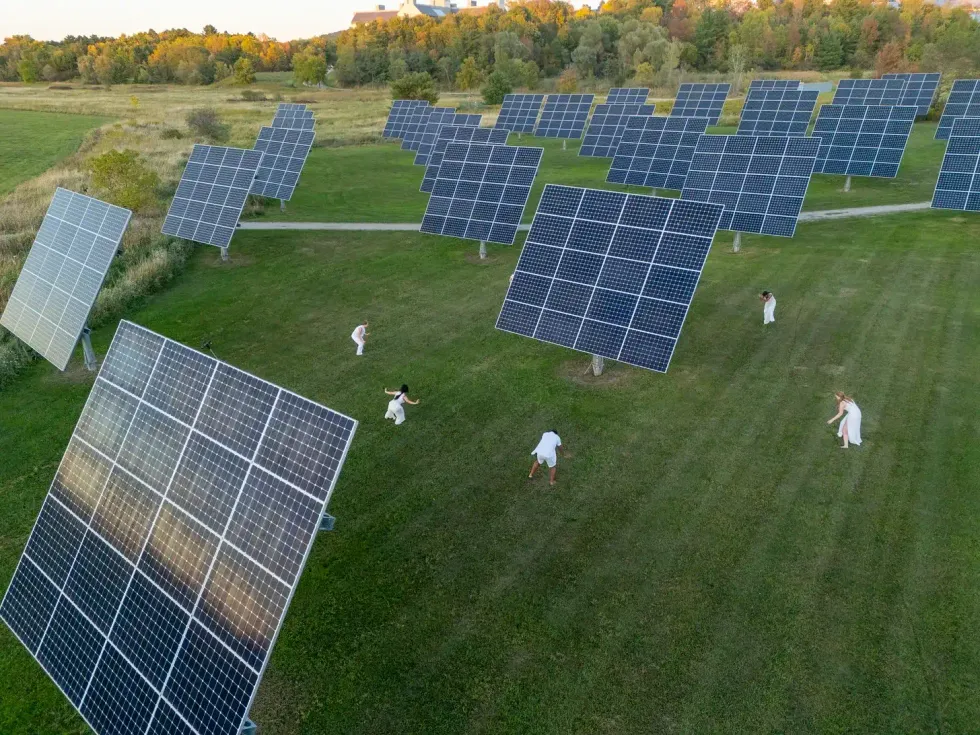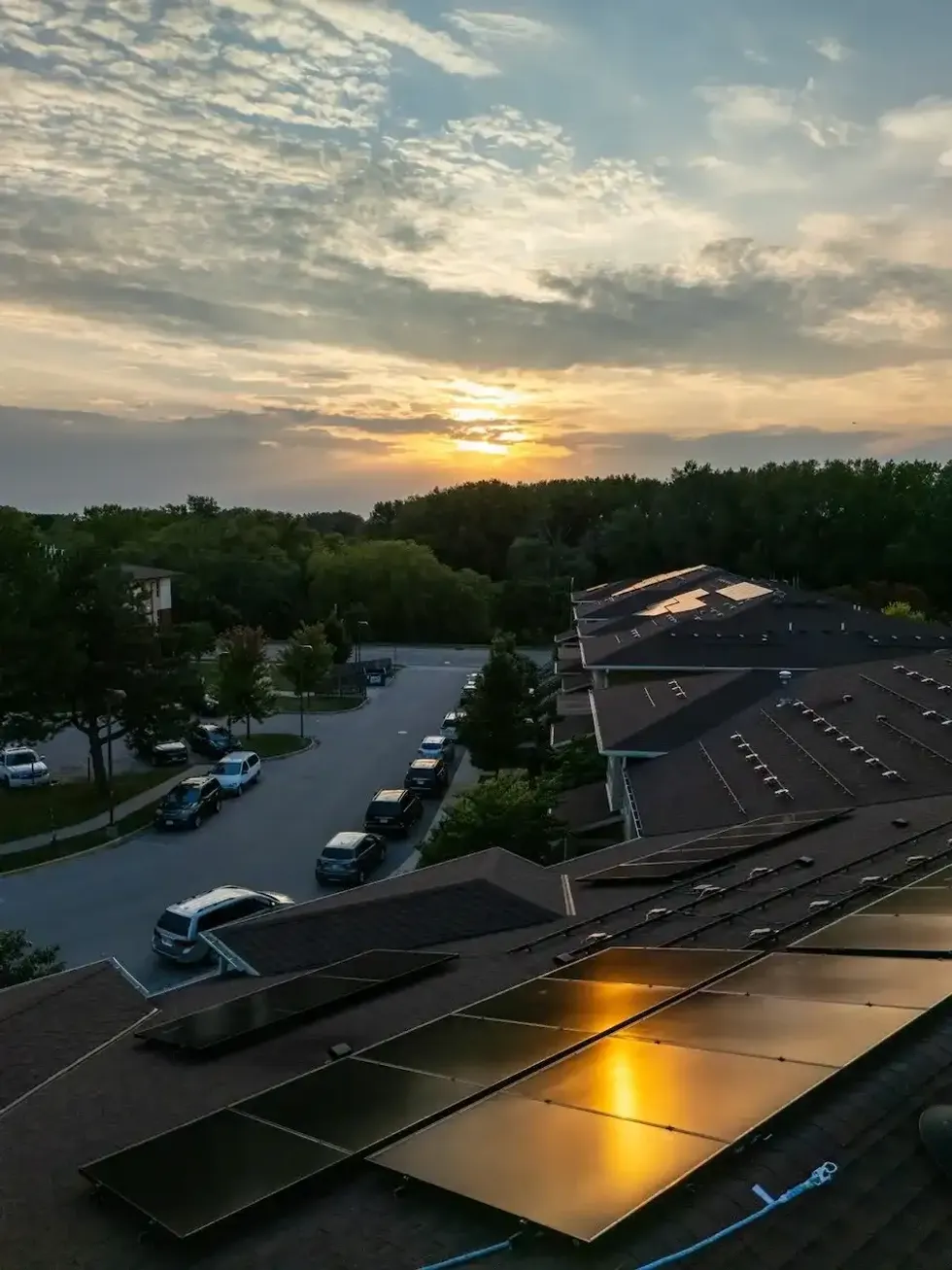"We're like this little tiger team, concierge, white-glove service, essentially," Kelm said on the Lobby Shop podcast, "We were put together very particularly with the president's priorities in mind on energy. So keeping coal plants open, establishing critical mineral mining domestically, and then that broader supply chain."
She described her role in the council as being to help oil, gas, and coal companies navigate "the politicals" of agencies that grant permits for new projects. Companies, she said, "can walk out of our office, and they have all the contacts they need" for regulators in the Environmental Protection Agency (EPA), and the departments of the Interior and Commerce.
"We know how to unstick what is stuck," Kelm said. "It's a lot of undoing old policies and getting rid of regulatory burdens."
Mahyar Sorour, the director of the Sierra Club's Beyond Fossil Fuels policy project, responded: "The reality of fossil fuel companies getting white-glove, concierge service from the Trump administration would be comical if it weren't so sinister."
"During the election," she continued, "Trump told oil and gas executives that he would clear the way for more production without any safeguards if they gave his campaign a billion dollars—they did, and now Trump is blocking clean energy and giving the oil and gas industry immense handouts in return."
Since retaking office in January, Trump has sought to expand the production of oil, gas, and coal with reckless abandon, without regard to the impacts of carbon emissions on the planet or other environmental impacts of pollution.
As the rest of the world has surged its use of wind and solar projects, surpassing coal for the first time this year, the Department of Energy made a $625 million investment to "expand and reinvigorate the coal industry," which is the dirtiest form of energy.
And July's massive GOP budget contained billions of dollars worth of handouts for the fossil fuel industry, boosted drilling on millions of acres of public lands, mandated oil and gas lease sales, and imposed new fees on renewable development.
At the same time, Trump has singlehandedly reduced the US's growth outlook for renewables by 45%, according to the International Energy Agency (IEA).
As the Post reports:
His administration has held up permits for solar and wind projects since July and blocked wind farms outright. The Energy Department last week canceled $7.6 billion in funding for projects aimed at curbing climate change including installation of renewables, grid upgrades and carbon capture projects. That's on top of $27 billion in funding for clean energy that the Environmental Protection Agency is seeking to claw back.
Alan Zibel, an energy and environmental policy researcher for the consumer advocacy group Public Citizen, joked that while the "White House rolls out 'concierge, white-glove service' for fossil fuels... wind and solar aren't even allowed inside the Motel 6."
This is put on stark display by a report co-authored by Zibel, and released Monday by Public Citizen and the Revolving Door Project, which found that, under Trump, the agencies in charge of regulating energy and environmental policy "have made dozens of hires from the fossil fuel sector, mining conglomerates, and other polluting industries, as well as others who are well-paid to support a dirty energy agenda, such as corporate lawyers and the staffers from far-right think tanks directly tied to Trump's dirty energy agenda."
The report examined 111 executive branch appointees tasked with energy and environmental policymaking across nine agencies and found that 43 are former employees of fossil fuel companies.
While the EPA and Energy Department are each crawling with more than a dozen industry plants, no agency has more than the Interior Department, which has 32 in total.
One of them is Kelm herself, who, according to the report, "has spent her entire career working in Big Oil, most recently doing corporate relations for Shell, and previously in policy for Valero, community affairs for Noble Energy, and other roles for Texas-based oil companies like EnCore Permian and the Permian Basin Petroleum Association."
Far from just lower-level appointees, several agency heads have direct industry ties. Secretary of Energy Chris Wright was formerly the CEO of the hydraulic fracking company Liberty Energy and, according to the report, "regularly makes public statements that downplay the effects of climate change, carbon pollution, and the environmental impacts of fracking."
The administration also contains at least 14 corporate lawyers who worked for fossil fuel interests. David Fotouhi, the assistant secretary of the EPA, formerly worked as a lawyer at Gibson Dunn, which has represented oil and gas giants like the American Petroleum Institute, ConocoPhillips, and Energy Transfer. The law firm also helped to advise polluters like Chevron on how to beat lawsuits from state and local governments seeking to hold them legally liable for spreading misinformation about the climate crisis.
The administration also includes at least 12 officials directly handpicked from right-wing think tanks backed by fossil fuel money. Brooke Rollins, secretary of the Department of Agriculture (USDA), helped found the America First Policy Institute (AFPI) in 2021 with Texas oil billionaire and GOP megadonor Tim Dunn.
The oilman funded Rollins' organization to the tune of $400,000, with the explicit goal of staffing the next Republican administration with appointees who would gut US climate policy.
"It would be ideal if we could get rid of this ‘CO2 as a pollutant' business," Dunn said at an AFPI event in 2023.
"Texas-based billionaires have taken over the Trump administration, providing a steady stream of staffers and an extreme set of policy ideas that consciously favors the most polluting forms of energy," said Toni Aguilar Rosenthal, a senior researcher with the Revolving Door Project. "Trump's policies aid the fossil fuel industry's exploitation of the public sphere for private profit while simultaneously sabotaging renewables and ensuring that the US remains trapped in a dirty energy economy."














